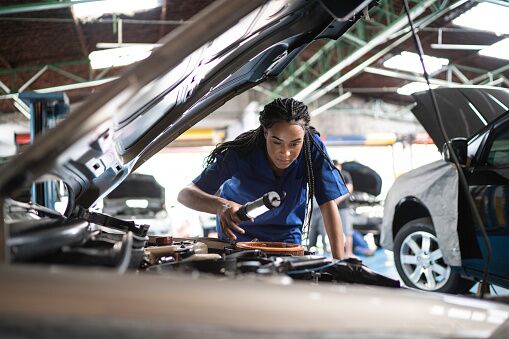All Categories
Featured

Your vehicle's engine is the heart of your car, and maintaining it in top condition is vital for optimal efficiency and longevity. Routine engine tune-ups are a fantastic means to keep your car's health and wellness, enhance fuel performance, and avoid costly fixings in the future. Whether you're an automobile enthusiast or somebody that just desires to maintain their car running efficiently, these engine tune-up suggestions will aid you obtain the most out of your cars and truck.
- Change Glow Plugs. Ignition system play a crucial function in beginning your engine and making sure smooth burning. Over time, ignition system can become filthy or broken, resulting in misfires, lowered fuel efficiency, and harsh idling.
During an engine tune-up, check and replace your ignition system if needed. Most lorries require brand-new ignition system every 30,000 to 100,000 miles, depending upon the type. On a regular basis changing ignition system guarantees appropriate ignition and optimal engine performance.
- Check and Clean the Air Filter. The air filter protects against dust, dust, and debris from entering your engine. A stopped up or filthy air filter restricts airflow, triggering your engine to function tougher and burn even more gas.
Inspect your air filter during a tune-up and replace it if it's filthy. In dusty atmospheres or locations with heavy pollution, you might need to alter the air filter a lot more regularly. A clean air filter can improve fuel effectiveness and expand the life of your engine.
- Examine and Replace Belts and Hose Pipes. Belts and hoses are crucial for various engine features, such as powering the alternator, water pump, and a/c system. Over time, these parts can split, battle royal, or wear out, possibly causing failures.
Throughout a tune-up, check belts and hoses for signs of wear and replace them if required. Replacing these parts proactively can save you from costly repair services and prevent unforeseen failings.
- Clean the Fuel System. Your gas system, consisting of the fuel injectors and fuel lines, can collect dust and carbon down payments with time, decreasing engine effectiveness. Cleansing the gas system during a tune-up aids boost efficiency and gas economy.
You can use a fuel system cleaner or have an expert mechanic carry out a more thorough cleaning. This step is specifically essential for older lorries or autos that often drive in stop-and-go traffic.
- Examine the Battery and Charging System. A healthy battery is important for starting your engine and powering electrical parts. During a tune-up, check the battery terminals for corrosion and make certain the links are tight.
Examine the battery's voltage and change it if it shows signs of weak point. In addition, have the generator and billing system tested to guarantee your battery stays billed during procedure.
- Modification the Engine Oil and Oil Filter. Oil adjustments are an essential part of engine maintenance. Engine oil lubes moving components, lowers friction, and helps control engine temperature level. With time, oil comes to be contaminated and loses its efficiency.
Throughout a tune-up, replace the engine oil and oil filter to maintain your engine running efficiently. Follow your car's maker recommendations for oil kind and modification periods.
- Examine the Cooling System. The cooling system prevents your engine from overheating. With time, coolant can break down or become polluted, reducing its efficiency.
Inspect the coolant level and condition throughout a tune-up, and flush and change it if required. Inspect the radiator, water pump, and pipes for leakages or damages. A well-kept cooling system aids your engine run at the ideal temperature level and avoids overheating.
- Test the Ignition System. A faulty ignition system can create starting concerns and decreased engine efficiency. During a tune-up, check the ignition coils, supplier cap, and rotor (if applicable) Replace any parts that show signs of wear or damage to make certain smooth and reliable engine procedure.
- Pay Attention for Uncommon Sounds. Throughout a tune-up, take the possibility to pay attention for any kind of unusual engine noises, such as knocking, ticking, or hissing. These sounds can indicate underlying concerns, such as valve issues, loosened elements, or exhaust leakages. Addressing these issues early can prevent extra considerable damage.
- Use Top Quality Components and Fluids. When performing an engine tune-up, constantly make use of premium components and fluids that meet your lorry maker's specs. Low-cost or wrong elements can jeopardize your engine's efficiency and integrity.
Verdict: A Well-Tuned Engine is Key to Durability. Normal engine tune-ups are crucial for maintaining your cars and truck's performance, performance, and dependability. By replacing used components, cleansing crucial systems, and dealing with possible problems, you can maintain your engine running smoothly for years to come. Whether you're doing it on your own or counting on a trusted technician, buying tune-ups is a clever way to protect your lorry and delight in a much safer, smoother ride.
Latest Posts
Enhance Your Home's Exterior with Weathercraft's Home siding Solutions
Savor with a View: Boat Up to Deauville Inn’s Waterfront Deck
Improve Your Property with Overhead Door Systems
